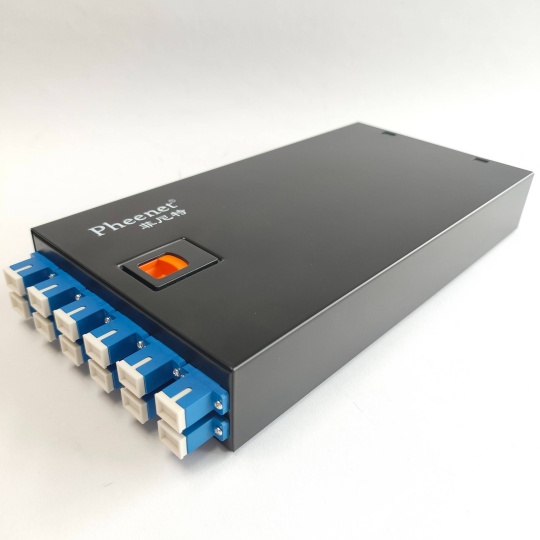Why do industrial cables require UV protection
Industrial cables serve as the “nerve system” for critical infrastructure—power transmission, manufacturing lines, renewable energy farms, and outdoor industrial zones all rely on their stable performance. However, when deployed in outdoor or semi-outdoor environments (such as rooftop solar installations, overhead power lines, or open-air factories), these cables face a persistent and destructive threat: ultraviolet (UV) radiation from sunlight. Unlike residential cables, industrial-grade cables carry higher voltages, endure heavier mechanical loads, and must operate continuously for years or even decades. Without adequate UV protection, their lifespan and safety are severely compromised—making UV resistance a non-negotiable requirement for industrial cable design.
1. UV radiation damages core cable materials
The outer insulation and sheathing of industrial cables are typically made of polymers like PVC, polyethylene (PE), or cross-linked polyethylene (XLPE). UV rays break down the chemical bonds in these polymers through a process called photo-oxidation, leading to irreversible material degradation:
- Insulation hardening and cracking: Over time, UV exposure makes the insulation layer brittle. Small cracks form on the surface, then spread inward—exposing the metal conductors inside to moisture, dust, and corrosive substances.
- Loss of flexibility: Industrial cables often need to withstand bending or vibration (e.g., cables in conveyor belts or construction machinery). UV-damaged sheathing loses its elasticity, making it prone to tearing during routine maintenance or operational movement.
- Color fading and material erosion: The outer sheath may fade from black to gray, a visible sign of polymer breakdown. In extreme cases, the sheath can flake off, leaving the cable’s internal structure unprotected.
2. UV damage risks electrical safety and operational failure
Industrial systems demand zero tolerance for cable malfunctions, as even a single faulty cable can cause production halts, equipment damage, or safety hazards. UV-induced degradation directly undermines electrical performance:
- Reduced insulation resistance: Cracks in the insulation layer allow moisture to seep in, lowering the cable’s ability to resist electrical leakage. This increases the risk of short circuits, ground faults, or even electrical fires—especially in high-voltage industrial applications.
- Signal interference (for data cables): Many industrial cables (e.g., those used in automation or IoT systems) transmit critical data. UV damage can disrupt the cable’s shielding, leading to signal loss or interference that compromises process control and monitoring.
- Premature cable failure: Unprotected industrial cables exposed to UV may fail in 2–5 years, far shorter than their intended 10–20-year lifespan. Replacing cables in hard-to-reach areas (e.g., tall utility poles or underground industrial trenches) adds significant maintenance costs and downtime.
3. UV interacts with other environmental factors to amplify harm
Industrial environments rarely expose cables to UV alone—UV radiation often acts in tandem with other stressors, accelerating damage:
- High temperatures: Outdoor industrial areas (e.g., steel mills, desert solar farms) experience extreme heat. UV radiation absorbs into the cable sheath, raising its internal temperature and speeding up polymer oxidation.
- Moisture and chemicals: Rain, humidity, or industrial pollutants (e.g., oils, solvents) seep through UV-induced cracks, causing corrosion of the metal conductors and further weakening the insulation.
- Ozone exposure: Industrial processes (e.g., welding, chemical manufacturing) generate ozone, which reacts with UV-damaged polymers to break down their molecular structure even faster.
Key UV protection measures for industrial cables
To mitigate these risks, manufacturers integrate targeted UV protection into industrial cable design:
- Use UV-resistant base materials: Premium polymers like ethylene propylene diene monomer (EPDM), chlorosulfonated polyethylene (CSPE), or fluoropolymers (e.g., PTFE) are inherently resistant to UV degradation, replacing standard PVC in outdoor applications.
- Add UV stabilizers and antioxidants: During production, additives like hindered amine light stabilizers (HALS) or benzophenone derivatives are mixed into the polymer. These compounds absorb or scatter UV rays, preventing photo-oxidation.
- Implement robust outer sheathing: Thick, weather-resistant sheaths (often black, as dark colors absorb less UV than light ones) or dual-layer designs (a UV-resistant outer layer plus an inner insulation layer) provide extra protection.
- Apply protective coatings: For specialized applications (e.g., marine industrial cables), a thin layer of UV-blocking resin is applied to the sheath to enhance resistance to saltwater and UV.
Trust FRS for industrial cables with reliable UV protection
When industrial operations depend on cables that withstand harsh outdoor conditions, FRS brand factory delivers solutions engineered for durability. We prioritize UV resistance at every stage of production: using high-grade UV-resistant polymers (EPDM, CSPE), integrating industrial-grade HALS stabilizers, and subjecting each cable to 1,000+ hours of accelerated UV testing (simulating 10 years of outdoor exposure) to ensure no degradation. Whether for solar power plants, outdoor manufacturing lines, or overhead power transmission, FRS industrial cables maintain electrical stability, mechanical flexibility, and long lifespan—even under intense UV and environmental stress. Choose FRS, and let your industrial systems run safely, continuously, and cost-effectively.











